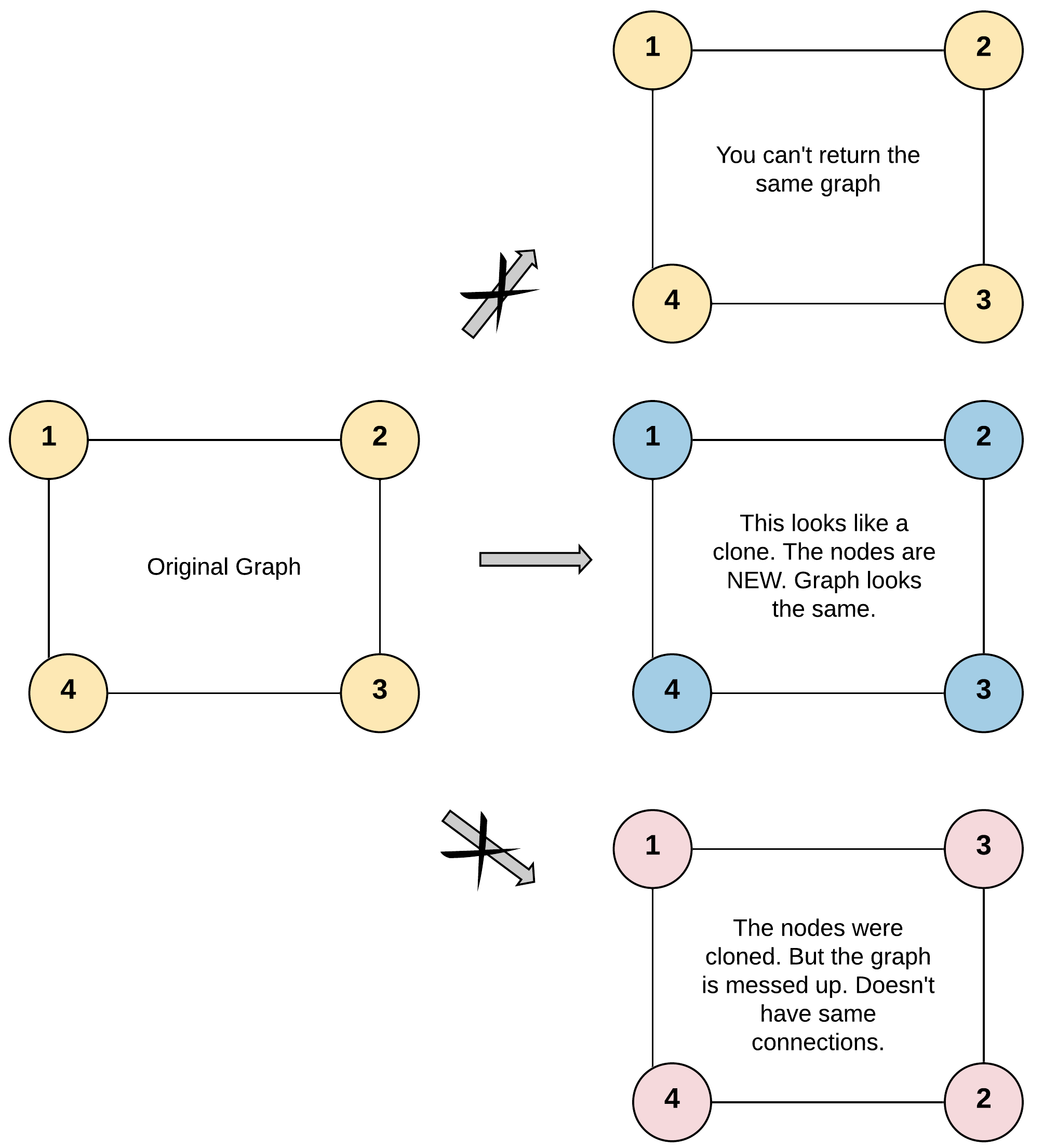LeetCode in Kotlin
133. Clone Graph
Medium
Given a reference of a node in a connected undirected graph.
Return a deep copy (clone) of the graph.
Each node in the graph contains a value (int) and a list (List[Node]) of its neighbors.
class Node { public int val; public List
Test case format:
For simplicity, each node’s value is the same as the node’s index (1-indexed). For example, the first node with val == 1, the second node with val == 2, and so on. The graph is represented in the test case using an adjacency list.
An adjacency list is a collection of unordered lists used to represent a finite graph. Each list describes the set of neighbors of a node in the graph.
The given node will always be the first node with val = 1. You must return the copy of the given node as a reference to the cloned graph.
Example 1:

Input: adjList = [[2,4],[1,3],[2,4],[1,3]]
Output: [[2,4],[1,3],[2,4],[1,3]]
Explanation: There are 4 nodes in the graph.
1st node (val = 1)’s neighbors are 2nd node (val = 2) and 4th node (val = 4).
2nd node (val = 2)’s neighbors are 1st node (val = 1) and 3rd node (val = 3).
3rd node (val = 3)’s neighbors are 2nd node (val = 2) and 4th node (val = 4).
4th node (val = 4)’s neighbors are 1st node (val = 1) and 3rd node (val = 3).
Example 2:

Input: adjList = [[]]
Output: [[]]
Explanation: Note that the input contains one empty list. The graph consists of only one node with val = 1 and it does not have any neighbors.
Example 3:
Input: adjList = []
Output: []
Explanation: This an empty graph, it does not have any nodes.
Constraints:
- The number of nodes in the graph is in the range
[0, 100]. 1 <= Node.val <= 100Node.valis unique for each node.- There are no repeated edges and no self-loops in the graph.
- The Graph is connected and all nodes can be visited starting from the given node.
Solution
import com_github_leetcode.Node
/*
* Definition for a Node.
* class Node(var `val`: Int) {
* var neighbors: ArrayList<Node?> = ArrayList<Node?>()
* }
*/
class Solution {
fun cloneGraph(node: Node?): Node? {
return cloneGraph(node, HashMap())
}
private fun cloneGraph(node: Node?, processedNodes: MutableMap<Node, Node?>): Node? {
if (node == null) {
return null
} else if (processedNodes[node] != null) {
return processedNodes[node]
}
val newNode = Node(node.`val`)
processedNodes[node] = newNode
for (neighbor in node.neighbors) {
val clonedNeighbor = cloneGraph(neighbor, processedNodes)
if (clonedNeighbor != null) {
(newNode.neighbors as ArrayList).add(clonedNeighbor)
}
}
return newNode
}
}

